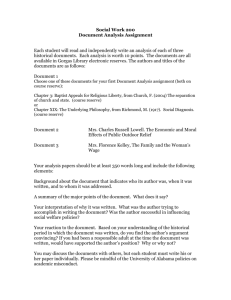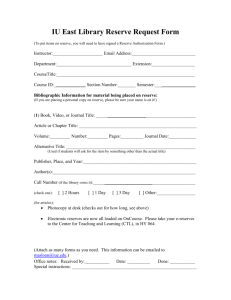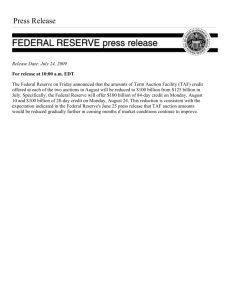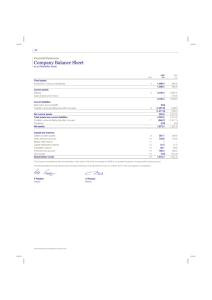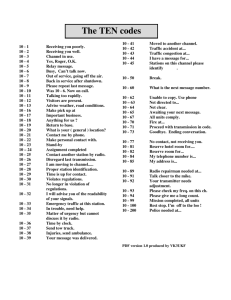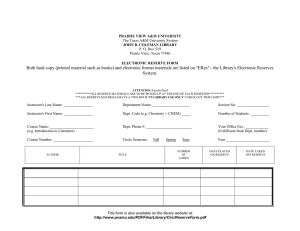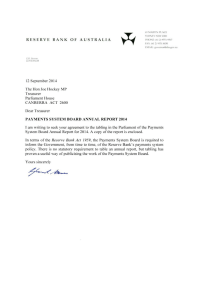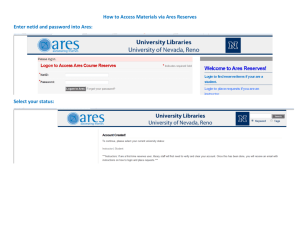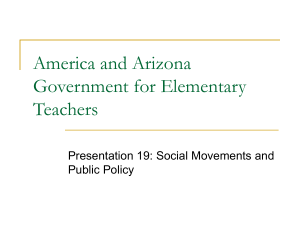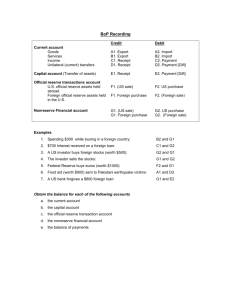Global Economy and Prospects for Financial Markets
advertisement
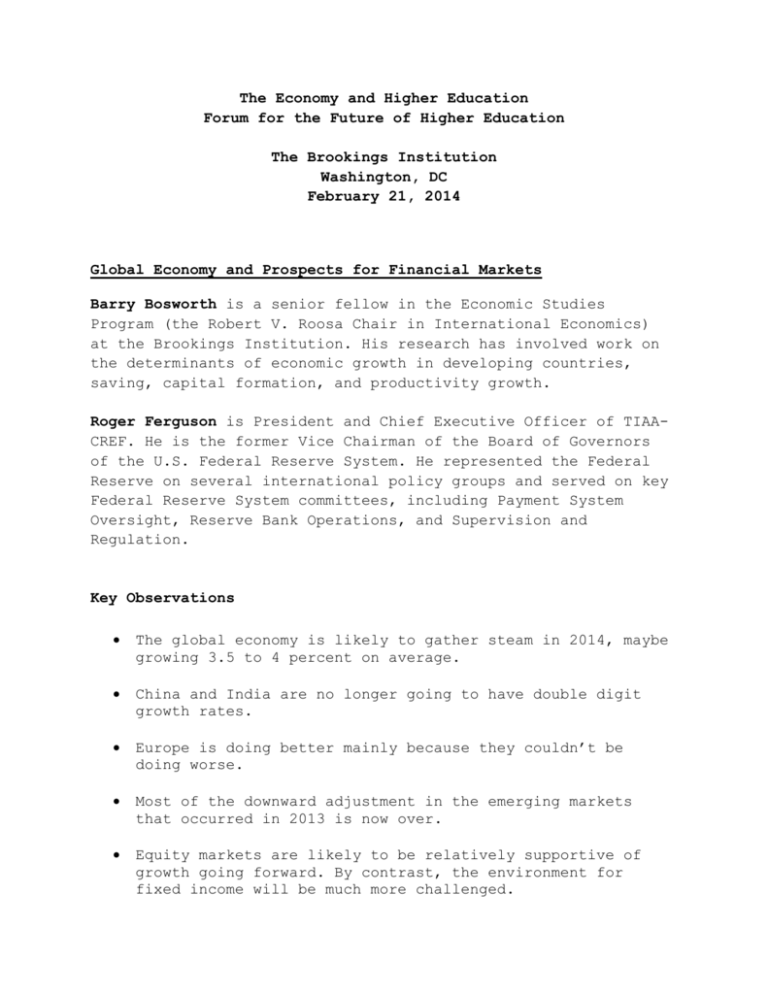
The Economy and Higher Education Forum for the Future of Higher Education The Brookings Institution Washington, DC February 21, 2014 Global Economy and Prospects for Financial Markets Barry Bosworth is a senior fellow in the Economic Studies Program (the Robert V. Roosa Chair in International Economics) at the Brookings Institution. His research has involved work on the determinants of economic growth in developing countries, saving, capital formation, and productivity growth. Roger Ferguson is President and Chief Executive Officer of TIAACREF. He is the former Vice Chairman of the Board of Governors of the U.S. Federal Reserve System. He represented the Federal Reserve on several international policy groups and served on key Federal Reserve System committees, including Payment System Oversight, Reserve Bank Operations, and Supervision and Regulation. Key Observations The global economy is likely to gather steam in 2014, maybe growing 3.5 to 4 percent on average. China and India are no longer going to have double digit growth rates. Europe is doing better mainly because they couldn’t be doing worse. Most of the downward adjustment in the emerging markets that occurred in 2013 is now over. Equity markets are likely to be relatively supportive of growth going forward. By contrast, the environment for fixed income will be much more challenged. A couple years ago people worried the Fed’s policy of buying up debt would stoke inflation, but today deflation seems the greater threat. Household income in the U.S. has held up very well during the recession. But in terms of market income there’s a sharp downward trend. The employment-to-population ratio is discouraging. Projections out to 2020 show it not rising. The economic model in higher education might be turning or changing. State schools are going to have to figure out how to become more like private institutions, building up planned giving and other sources of income. Medium sized liberal arts schools with good national reputations must appeal to their natural constituencies by conveying why there’s good value for money. The value proposition is around the faculty and other students one meets there. Big universities need to monitor what’s going on in Washington D.C. The research schools have to be deeply concerned about budget negotiations and NSF grants. Endowment management is important. around raising money. There are two or three ways to invest in China but none of them are very attractive. China’s view of the world is worrying because it’s very much a zero sum game. The slowing economies overseas are unlikely to reduce the number of international students because most of these students come from the very upper end; a slowing economy is not necessarily very detrimental to them. There’s an arms race Financial issues are not at the heart of why so many university employees are reluctant to retire. It is much more psychological, about having a vision of what retirement looks like. The models of interaction between faculties and institutions are likely to change. The drive towards MOOCs, for example, will have a big impact on the economics of higher education. Financial literacy among faculty and employees at universities is inadequate. Many steps can be taken to improve financial literacy.


